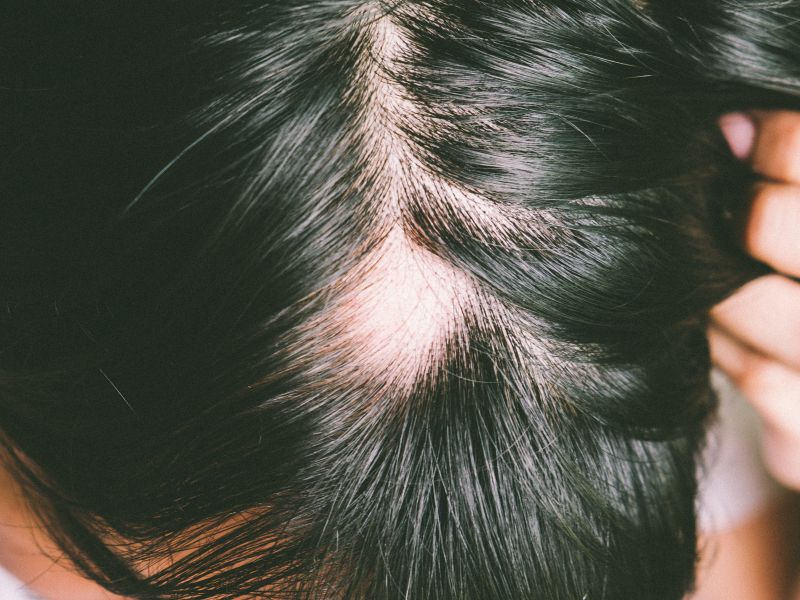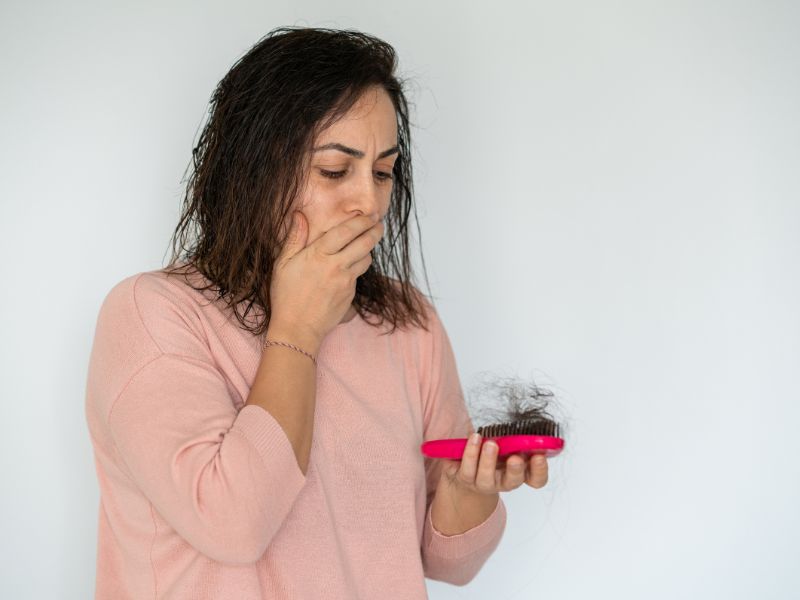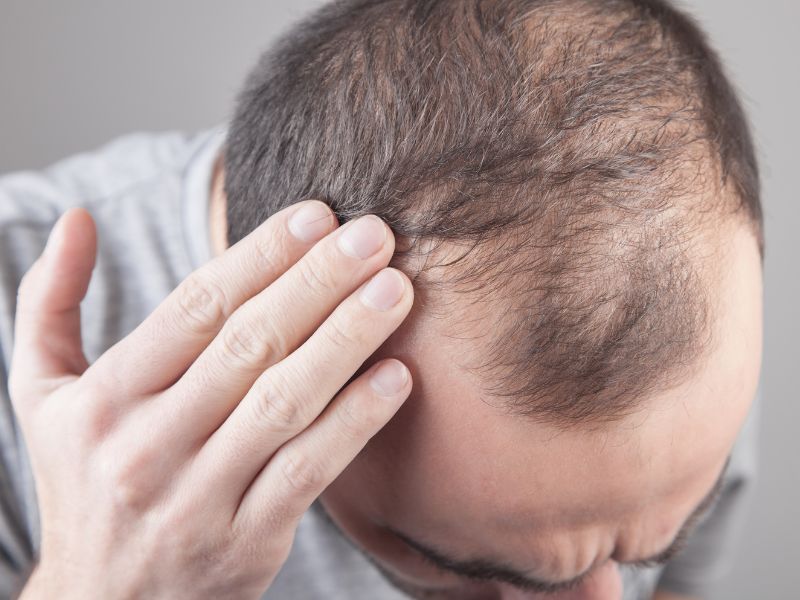Telogen Effluvium is a common form of hair loss characterized by significant hair shedding. Various stressors, such as physical trauma, emotional stress, hormonal changes, or nutritional deficiencies, typically trigger it. Many individuals facing this condition wonder whether it is reversible. In this article, we will delve into the nature of Telogen Effluvium and discuss its potential for reversal.
Understanding Telogen Effluvium
Telogen Effluvium occurs when a larger-than-normal percentage of hair follicles enter the telogen (resting) phase of the hair growth cycle prematurely. This results in increased hair shedding, which can be distressing for those experiencing it. Unlike other forms of hair loss, like androgenic alopecia (male pattern baldness), Telogen Effluvium is often temporary.

Canva. com
Reversibility Of Telogen Effluvium
The good news for those with Telogen Effluvium is that it is generally reversible. Once the condition’s underlying cause is identified and addressed, the hair growth cycle returns to its usual pattern, and hair density gradually improves.
Identifying And Addressing Triggers
Effectively addressing Telogen Effluvium necessitates a precise identification and proactive management of its root causes. It may involve seeking medical advice to investigate potential causes such as nutritional deficiencies, hormonal imbalances, or chronic stress. Once identified, a healthcare professional can guide you through the necessary steps to rectify these issues.

Canva. com
Patience Is Key
While Telogen Effluvium is reversible, it’s important to note that the process may take time. Hair growth is a gradual process; it may take several months before noticeable improvement occurs. It’s crucial to be patient and persistent in following any prescribed treatments or lifestyle changes.
Preventive Measures
Taking steps to prevent the recurrence of Telogen Effluvium is essential. It may involve adopting a balanced diet rich in essential nutrients, managing stress through relaxation techniques or counseling, and maintaining overall physical health. Regular exercise, adequate sleep, and a well-rounded, nutrient-dense diet can contribute to a healthy hair growth cycle.
